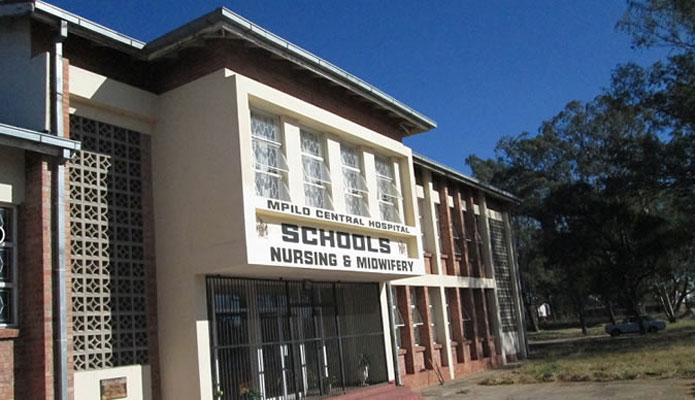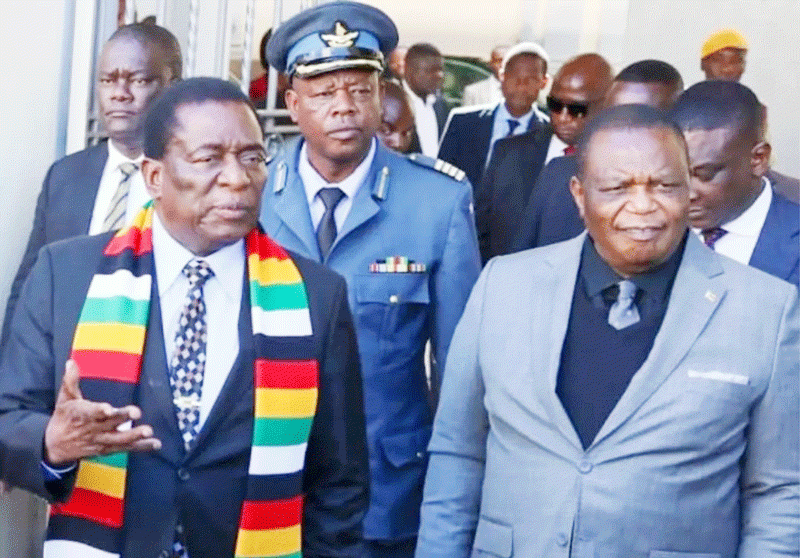
BY KEVIN S MALUNGA
I was born at Mpilo Central Hospital in Bulawayo during the last decade of the infamous Ian Smith Rhodesian regime. In those days black people were banished to the townships. I am not a fan of the Smith government and never will be. What cannot be disputed, however, is that upon independence in 1980 the new black-led government inherited a solid infrastructure and systems. Bulawayo has always been considered the most organised city in Zimbabwe from town planning to efficient municipal water and health systems. Even after independence the city was fortunate to be led by capable leaders of the likes of Nick Mabodoko, Dennis Ndlovu, etc and the long-serving town clerk Mike Ndubiwa.
Even when Zimbabwe’s economic fortunes started declining from 1990 onwards and there were severe water challenges emanating from drought, the city always delivered quality services to its residents, including clean, drinkable tap water. Grass was always cut, refuse collected, municipal clinics worked efficiently, street lights were always functional and the wide, spacious roads were the envy of many international and domestic visitors. It didn’t matter whether you were in the suburbs or townships. Everything worked. Remember too that the city was the country’s industrial powerhouse nicknamed “kontuthu ziyathunqa”, meaning “where the smoke always billows”. Back then it was an industrial hub that housed globally known brands such as Merlin Towels, Van Heusen Shirts, Supersonic Radio, among many others. Lately, many of those factories are locked shells gathering dust or are home to fly-by-night churches. The city’s famed Centenary Park is now overgrown with grass and litter is strewn all over.
Even at the height of the inflationary period around 2006-2008 when everybody became a trillionaire, the city miraculously delivered clean water and decent services at a time when the country’s leadership was at its most unaccountable, vicious and violent. Bulawayo’s municipality somehow always weathered the storm and provided solace to its long-suffering residents, who eventually voted Zanu PF out of power as is the case in other metropolitan areas.
Fast-forward to 2020 and there is an opposition-led municipality with a young MDC Alliance mayor and the city is looking like the worst-run it has ever been in its history. To use the fancy language of governance experts, the City of Bulawayo is experiencing both service failure and conduct failure. Service failure means maladministration that consists of failure to properly deliver services and amenities by a state entity. Conduct failure refers to maladministration that consists of corruption, failure to manage conflict of interest, abuse of power, nepotism, favouritism, etc. I will illustrate some instances that have embarrassed the City of Bulawayo recently and have called into question the suitability of the city’s current leadership.
First, on June 14, 2020, residents of Luveve township staged a demonstration over four deaths allegedly caused by contaminated water. The city issued an insensitive denial speculating that residents are not storing water properly and should not use metal containers. What was missing in the statement is an acknowledgment that the almost permanent water cuts, which the city now experiences are a public health hazard. Apart from the videos of vulnerable elderly gogos (grandmas) staging a demonstration, there was another video doing the rounds of a tap producing brown water in full throttle in Khumalo suburb where my Bulawayo residence happens to be. Water vanishes for nine days on end with hardly any explanation. Many people in places like Pumula, etc speak of longer periods. In spite of the lengthy absence of water, residents are still slapped with exorbitant bills. To add injury to insult, two weeks ago a council employee was recorded nonchalantly browsing YouTube videos while the queue for services was 100 metres long. The explanation received was that the said official is a traffic official, who is not involved with rates or water bills and was, therefore, justified in idling away. Water is life, literally. Without it, the quality of human life declines and gives way to disease and economic stagnation. The drought excuse won’t work for me because even at the height of Matabeleland’s water problems, the quality of its water has always been the best in the country. Let me guess why they can’t deliver on clean water. They are busy looting and allocating council property to each other.
On June 16, 2020, a media storm brewed concerning the proposed lease for 25 years of 3 hectares of land in Upper Rangemore to mayor Solomon Mguni for the monthly sum of $165 (US$2). Many people raised the issue of the paltry sum being charged for such a prime property. His supporters argued that this is the going rate for renting council property. What they did not get is that this proposed transaction violates basic tenets of clean governance. It is blatant conflict of interest to allocate such land to a sitting mayor. If it happened in the past, it should stop. There may be attempts to spin this, but there is a causal link between his being mayor and the proposed allocation. The town clerk, Christopher Dube, in whose name these adverts are communicated to the public, also failed in his fiduciary duty to protect ratepayers and the integrity of the municipality by allowing this transaction to be considered in the first place.
The international standard and definition for conflict of interest is very simple. According to the Organisation for Economic Co-operation and Development Toolkit For Managing Conflict of Interest In The Public Sector, a conflict of interest exists where there is an unacceptable possibility of conflict between a public official’s interests as a private citizen (private capacity interests) and their duty as a public official or civil servant (official duty).
- Chamisa under fire over US$120K donation
- Mavhunga puts DeMbare into Chibuku quarterfinals
- Pension funds bet on Cabora Bassa oilfields
- Councils defy govt fire tender directive
Keep Reading
Some have argued that the Urban Councils Act, 2015 can be considered as an adequate loophole for the mayor to receive such an allocation. It is my considered opinion after perusing the legislation, there is nothing in it that can justify a potentially unethical transaction such as this. Granted, Zimbabwe’s anti-corruption legislation such as the Anti-Corruption Commission Act, 2004 and Prevention of Corruption Act, 2001 is somewhat foggy when compared to its regional peers, the fact still remains that it is not official state policy for public office bearers to abuse their offices for blatant private gain.
Third, according to reports in May 2019, councillor Mguni is not the only one wanting an incestuous relationship with public resources. According to the Sunday News, out of 29 councillors, only five have not been given council property to lease. There has been no denial or proof to the contrary of this startling allegation. The report went further to indicate that the mayor sought to lease a bottle store in Njube while his wife sought to lease a shop in Makokoba, but was warned by council officials that this may backfire badly. Again there has not been a denial or proof to the contrary. One can only sympathise with the officials who are caught between a rock and a hard place juggling fearing for their jobs and unethical requests from their superiors. If these reports are anything go by; the majority of councillors led by the mayor and supported by the town clerk do not understand the role of holding public office. When confronted with these allegations, the mayor responded as follows: “I forwarded my application like any other resident and when that matter was being discussed, I recused myself from the meeting and I would not know whether I got the lease or not, I am eagerly awaiting the full council meeting to see whether I got it or not.” What the mayor does not get is that he is not just any other resident. Public office is public trust and as a public official he is entrusted to make decisions affecting the rights and interests of private citizens. A public official has a duty to ensure that his official position is not used improperly for private advantage. There is nothing stopping him from resigning and becoming a private citizen who can freely engage in business transactions. This double-dipping constitutes an abuse of power and is basically not allowed in 100% of respected democracies around the world. It is almost like a student marking his/her own exam. Mguni’s subordinates are unlikely to cross paths with their boss by declining his application.
Fourth, in 2015 the city council authorised then sitting deputy mayor Gift Banda to buy 3.5 hectares of Ascot Race Course for a paltry $130 0000 for the purpose of constructing townhouses. The tragic irony is that Ascot Race Course is a rotting shell with the last horse race having been held there in 2001.
Their priority is clearly not service delivery, but to eat, eat and eat some more. This blatant stripping of public assets reminds me of Michela Wrong’s It’s Our Turn to Eat: The Story of a Kenyan Whistle-Blower which narrates a similar experience by Kenya whistleblower John Githongo. It is brazen, it is crude, but most importantly it is the worst kind of stealing from the poor in a sea of poverty.
Lastly, on June 16, 2020 media reports confirmed another disturbing decision by the city council to sell off part of the historical Harry Allen Golf Club to private buyers based in South Africa. Perhaps this is a crude and amateur attempt to emulate residential golf estates that are found in South Africa and other jurisdictions. The difference is that in those jurisdictions they were proper real estate projects from the beginning, not a blatant stripping or desecration of public assets. Local Government minister July Moyo who has to approve this should do the sensible thing and decline this vulgar abuse of public authority.
Meanwhile, staff morale is very low. I personally know some maintenance workers with up to 40 years service for the city who live in abject poverty with salaries often late with nothing to show for their years of service. Contrast this to their high-flying bosses.
In the smouldering ruins of Zimbabwe’s local government, Bulawayo was one of the last decent municipalities standing. This is clearly no longer the case. The current leadership of the city — from the mayor to the councillors — clearly have self-enrichment as their top priority and the town clerk is not stopping them either. There is a need to find leaders of the original ethical calibre that Bulawayo knew. Surely the likes of Alderman Dennis Ndlovu, Arthur Ncube, former town clerk Mike Ndubiwa etc must be hanging their heads in shame at this brood of vultures which has reduced such a beautiful city to a laughing stock. The solution can only come from three oversight entities. Firstly, Local Government minister Moyo must exercise his legislative powers and put a stop to this rot.
A forensic investigation combined with an audit of all possible conflict of interest scenarios must be gazetted as soon as possible. The likelihood is that what I have described above is just a tip of the iceberg. Secondly, perhaps more embarrassingly given what they preach in manifestos, their political principals — the Movement for Democratic Change (MDC) — must recall them. The irony is that Nelson Chamisa and his leadership have not condemned such abuse of public power by their elected representatives. They are conspicuously quiet. Thirdly, the anti-corruption commission must open a formal investigation with the aim of rooting out criminal and/or corrupt conduct. This awkward state of affairs is surely the height of cruelty to the long-suffering resident and rate payer. If this leadership cannot shape up, they must ship out.
l Kevin Sifiso Malunga is a Bulawayo-born advocate who has worked extensively on anti-corruption and good governance issues.










